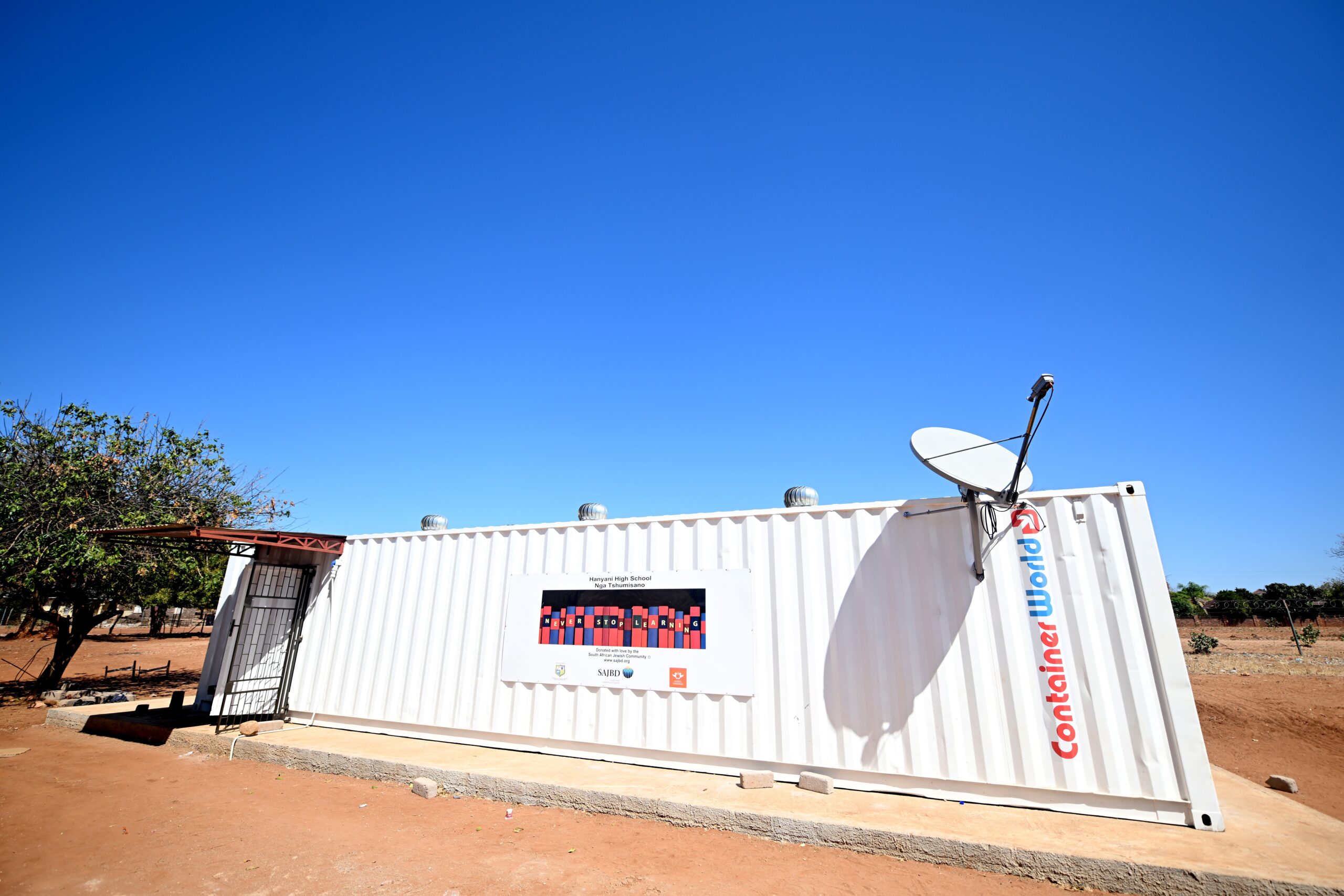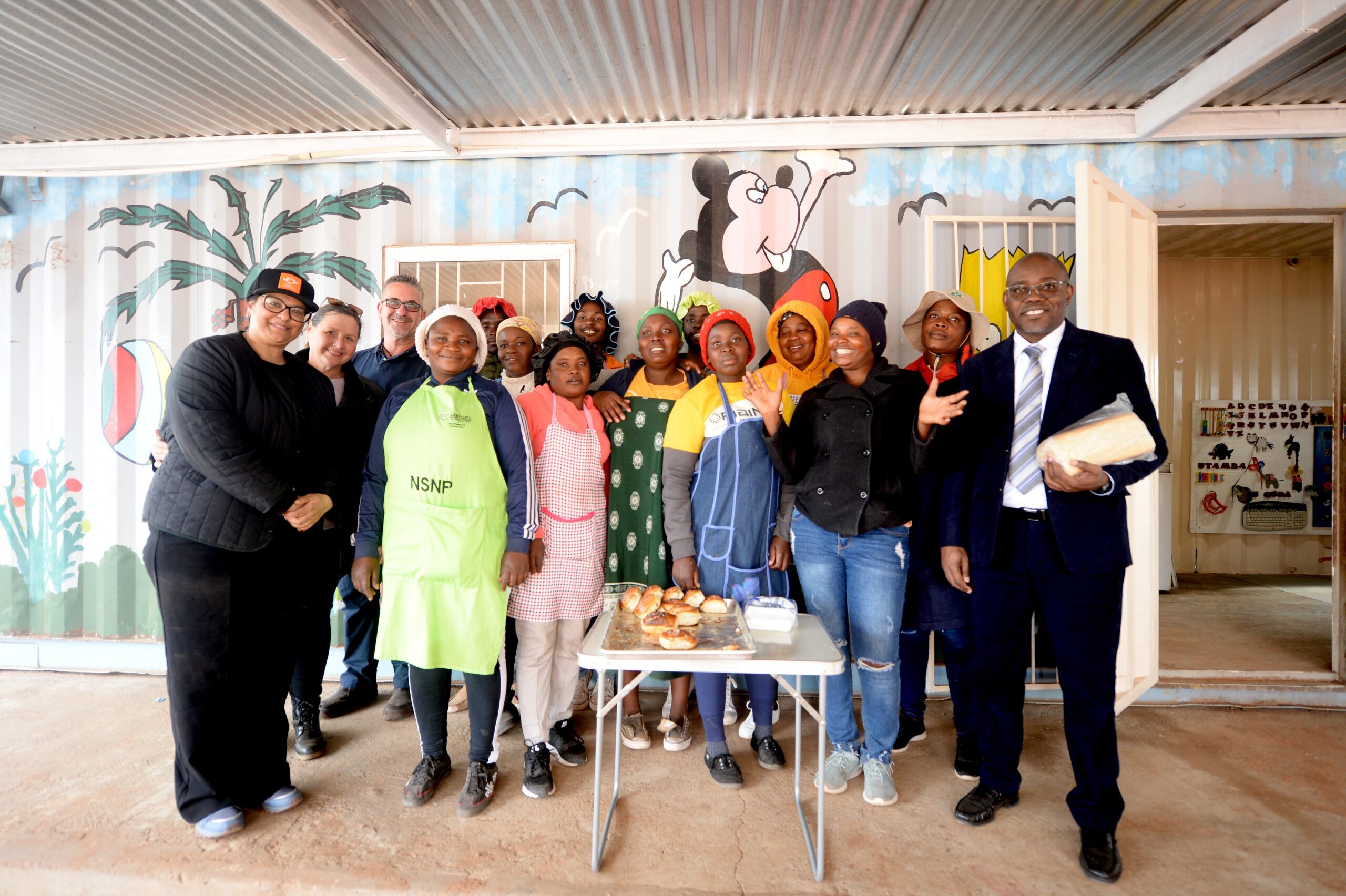The University of Johannesburg (UJ) has officially launched its transformative “UJ for Societal Impact” project in Limpopo. This initiative, which was launched on Friday, 4 October 2024, addresses critical infrastructure needs in the remote villages of Gwakwani, Matatani, and Mbodi in the Vhembe district, bringing sustainable solutions in energy, water, connectivity, and education.
The project, which dates to 2014, was developed in collaboration with the private sector. It directly supports the United Nations Sustainable Development Goals (SDGs), including access to clean water, affordable energy, quality education and healthcare as well as technological advancement.
It was launched at a ceremony held at Hanyani Secondary School, which serves as cluster of villages stretching over a radius of about 15km. The UJ For Societal Impact project has also been expanded to the school, as it now boasts solar panels and a state-of-the-art learning facility, known as the Tshumisano Learning Centre, among other initiatives.

The gathering was entertained by traditional Tshivhenda dancers perfoming Tshigomba and a performance by the Hanyani School choir.
Hundreds of residents from various villages attended the launch, along with traditional leaders, corporate partners of the project and local leaders of the Vhembe district. Also in attendance were members of the UJ executive leadership and the University’s Chancellor, Dr Phumzile Mlambo-Ngcuka.
In her remarks Dr Mlambo-Ngcuka thanked the community of the villages for being open to a project of this kind coming into their lives, and for their continued support of these initiatives.
Additionally, she congratulated the UJ community for their collaborative efforts bringing societal change.
“We normally segregate ourselves as faculties and areas of specialization just so we can finish ‘work’. But ultimately, we recognize that in real life we are capable of being integrated. When you go out, into the world you need a Dr, a lawyer- services such as water, electricity as just one person. This project has demonstrated the value we can bring when we work together-and I must say, you aced it!”
Godfrey Nefolovhodwe, a resident of Gwakwani whose desire to see a better environment for his community expressed his gratitude to UJ for the change they’ve brought to the community.
“When UJ arrived, things quickly started to change. It feels like we’re almost on the map. The government had forgotten us, but now they know that there is a village called Gwakwani. I am deeply grateful to UJ and its staff for their ongoing assistance and support,” he said.

Key Project Highlights:
- Renewable Energy: Solar-powered boreholes, streetlights, and home lighting now provide reliable and sustainable energy.
- Water Access: Solar pumps and a new water network ensure consistent access to clean water in the villages.
- Digital Connectivity: The introduction of satellite internet has revolutionised access to information and enhanced educational opportunities.
- Economic Empowerment: A solar-powered bakery and agricultural irrigation systems have created jobs and improved food security.
- Educational Enhancement: Local schools, including Hanyani High, are now equipped with ICT centres, science labs, and updated learning materials, preparing students for a technology-driven world. The University has also set up an Early Childhood Development centre or creche, for the younger generation in the community.
- Social Justice and crime prevention: The social justice centre will help residents with access to crucial services such Home Affairs, SASSA and collaboration with local police to provide crucial community education and crime prevention activities.
Speaking at the launch, UJ Vice-Chancellor and Principal, Professor Letlhokwa George Mpedi highlighted the importance of the project:
“Through its interventions, this project directly addresses issues of inequality by improving access to basic services in marginalised rural communities. It promotes sustainable practices, especially in energy and water conservation, addressing immediate needs while ensuring long-term viability. By involving the community in the decision-making and implementation process, UJ fosters a sense of ownership and self-reliance among the residents. This project also provides UJ students with real-world learning opportunities in fields like engineering, health sciences, and community development as demonstrated by the various roles played by diverse faculties. We are creating a generation of socially conscious professionals.”
Prof Mpedi further lauded the dedication of the UJ community for making use of their expertise towards the elevation of this community:
“We know that education and empowerment are vital tenets of sustainable development. Through projects such as this, we are given the important opportunity to make a real and lasting difference. I would like to express my heartfelt gratitude to everyone involved in bringing this project to life. Your commitment to societal impact and community engagement is inspiring. As this project demonstrates, we have the ability to make a change.”
The UJ for Societal Impact project marks a critical step in the University’s drive for societal transformation through education, innovation, and its leadership in achieving the UN SDGs.
And for the residents of Gwakwani, Mbodi and Matatani, life has certainly improved for the better.
Watch the video of the UJ for Societal Impact project here:



